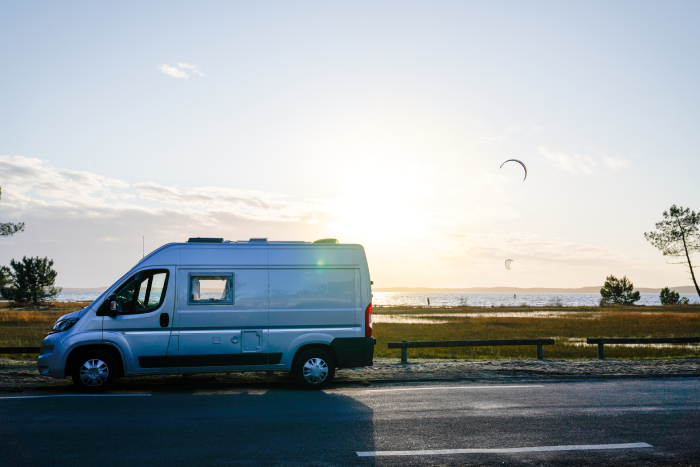
Upgrading your Camper Van 2024
Key Considerations When Upgrading your camper van
Are you thinking of upgrading your motorhome?
Buying a motorhome is a significant investment, promising freedom and adventure on the open road. However, it requires careful planning and consideration to ensure you make the right choice for your needs and budget. Here’s a comprehensive guide on what to consider when buying or financing a motorhome in Ireland.

-
Define Your Needs and Preferences when upgrading your camper van
Start by identifying your needs and preferences to narrow down your options:
Usage: How often and for how long will you use the motorhome? Weekend getaways, extended breaks, or continental travel?
Travel Companions: How many people will travel with you? Consider the sleeping arrangements and seating capacity for you and your family. Do you have pets?
Travel Destinations: Will you be traveling primarily on motorways or exploring off-road destinations? This will influence the type of motorhome and its features.
-
Types of Motorhomes
Understand the different types of motorhomes available:
Class A: Large and luxurious, with ample living space and amenities. Ideal for long-term travel but can be expensive and less manoeuvrable.
Class B (Campervans): Smaller and more agile, easier to drive and park. Suitable for short trips and smaller groups.
Class C: A mid-size option, often built on a small truck or van chassis, offering a balance between space and manoeuvrability.
-
New vs. Used Motorhomes
Decide whether to buy new or used:
New Motorhomes: Come with the latest features, warranties, and customisations but at a higher cost.
Used Motorhomes: More affordable and may come with upgrades from previous owners. However, they may require more maintenance and repairs.
Newer motorhomes generally have broader finance options.
- Budget and Financing
Establish a clear budget and explore financing options:
Initial Cost: Consider the purchase price, deposit required and any immediate upgrades or customisations.
Financing: See what the best finance options are. Older motor homes are usually financed by bank or credit union loans with newer vehicles qualifying for competitive Hire Purchase/ Car finance rates. Compare interest rates and terms to find the best option.
Insurance: Get quotes for insurance and factor this into your budget.
-
Operating Costs
Factor in the ongoing costs of owning a motorhome:
Fuel: Larger motorhomes consume more fuel. Calculate estimated fuel costs based on your travel plans.
Maintenance: Regular servicing, repairs, and potential upgrades can add up. Budget for these expenses.
Storage: Consider the cost of storing your motorhome when not in use usually during winter in Ireland, especially if you don’t have space at home.
-
Features and Amenities
Consider the features and amenities that are important to you:
Kitchen and Bathroom: Check the layout and functionality of the kitchen and bathroom. Ensure they meet your needs.
Sleeping Arrangements: Ensure there are enough beds for everyone traveling with you.
Storage Space: Adequate storage is crucial for long trips. Check for interior and exterior storage options.
Technology: Look for modern conveniences like solar panels, Wi-Fi, GPS, and entertainment systems.
-
Test Drive and Inspection
Before finalising your purchase, do the following:
Test Drive: Ensure you’re comfortable driving the motorhome. Pay attention to its handling, braking, and visibility.
Inspection: If buying used, have a professional inspect the motorhome for any mechanical issues, water damage, or wear and tear.
Finance: For peace of mind, have your finance package in place prior to engaging with the dealer.
-
Legal and Regulatory Considerations
Be aware of the legal and regulatory requirements:
Licensing: Ensure you have the appropriate driving license for the size and weight of the motorhome.
Safety Standards: Check that the motorhome meets safety standards and has necessary certifications.
-
Resale Value
Consider the potential resale value:
Brand and Model: Some brands and models hold their value better than others.
Condition and Maintenance: A well-maintained motorhome with up-to-date service records will have a higher resale value.
Upgrades and Customisations: Certain upgrades can enhance resale value, while highly personalised modifications may not.
-
Lifestyle and Commitment
Reflect on the lifestyle commitment:
Time Investment: Owning a motorhome requires time for maintenance, cleaning, and planning trips.
Community and Support: Engage with the motorhome community for tips, advice, and support.
Conclusion
Buying a motorhome is an exciting venture that requires thorough research and careful planning. By defining your needs, understanding the different types of motorhomes, setting a budget, considering operating costs, you can make an informed decision that enhances your travel experiences. Happy motorhome shopping and safe travels! Also here is a top 10 list of campervan sites in Ireland.
If you would like to discuss financing options for motorhomes contact Vendor Finance today on 071931 0137. Keep an eye on our blog for more interesting articles


